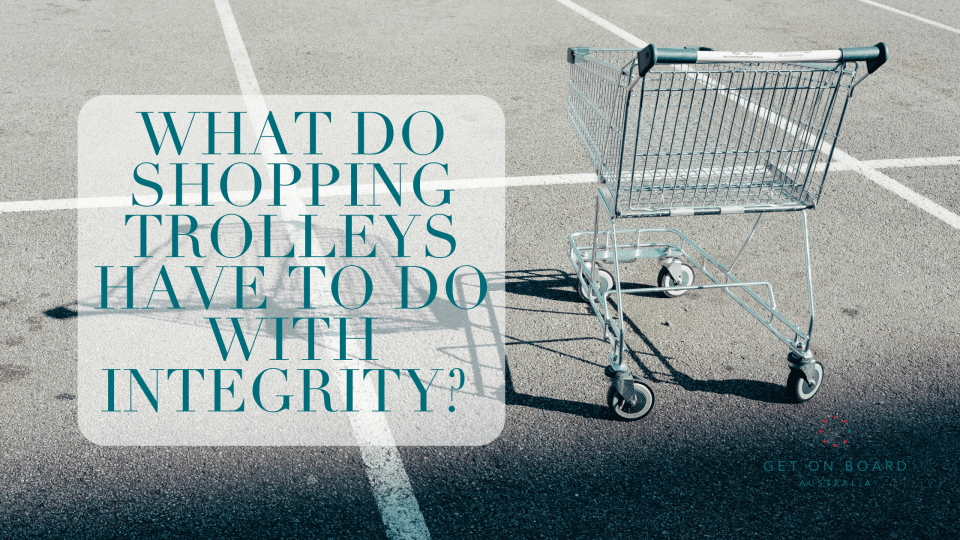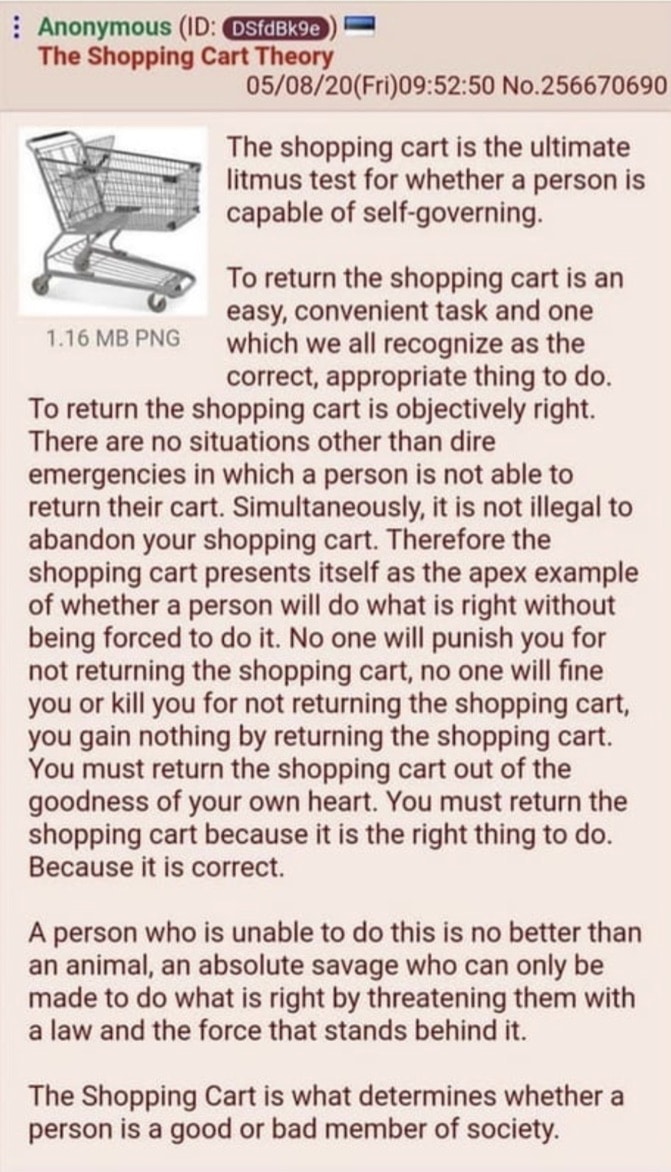What do Shopping Trolleys have to do with Integrity?

Integrity.
It’s something that, as board members, we believe that we have, and it’s something that we look for and expect from our fellow board members.
It’s also likely written into your organisation or board values statement; after all, 65% of companies list integrity as a corporate value1.
When a recent study found that there is no correlation between the cultural values espoused by a company and how well it lives up to those values in the eyes of employees, it’s no surprise that we end up with a Volkswagen or Boeing style of values crises?2
It leaves me wondering, do we really operate with integrity?
If integrity is doing the right thing when no one is looking, what do our private actions say about our integrity?
The Shopping Trolley Dilemma
If I have one pet peeve, it’s shopping trolleys being abandoned in the middle of car parks. I always wondered what it was about this that bugged me so much. And then I discovered ‘The Shopping Cart Theory’:
Whilst it may be a little extreme (I actually don’t think shopping cart abandoners are absolute savages), it highlights an important message about our own values/action alignment.
Chances are as board members we think and tell people that we have and act with high integrity. It’s what we believe we need to be great board members and it’s what our shareholders/members, customers and peers assume and expect us to have.
Walk the Talk
‘Official corporate values only matter to the extent they shape employees’ activities and decisions on a day-to-day basis. This raises a fundamental question: How well does behavior inside a company align with cultural aspirations? In other words, when it comes to their core values, do companies walk the talk?’3
If an employee saw a board member inconsiderately abandon their shopping trolley in the middle of a car park, what would they think about the company’s espoused value of integrity? More importantly, if no one was looking, what would you say about it?
‘Aligning behavior with official culture allows companies to differentiate themselves from competitors, build trust with stakeholders, increase brand equity, and attract great talent.’4
When you are faced with a situation where you have a choice to do something without force, such as returning your shopping trolley to the trolley corral/bay, what option do you usually take? Do you think your behaviour in this, and other similar, circumstances extrapolate out into other decisions you regularly make, either in the boardroom or otherwise?
Subscribe to Receive Articles, Resources, and Tools to Support Your Board Career.

